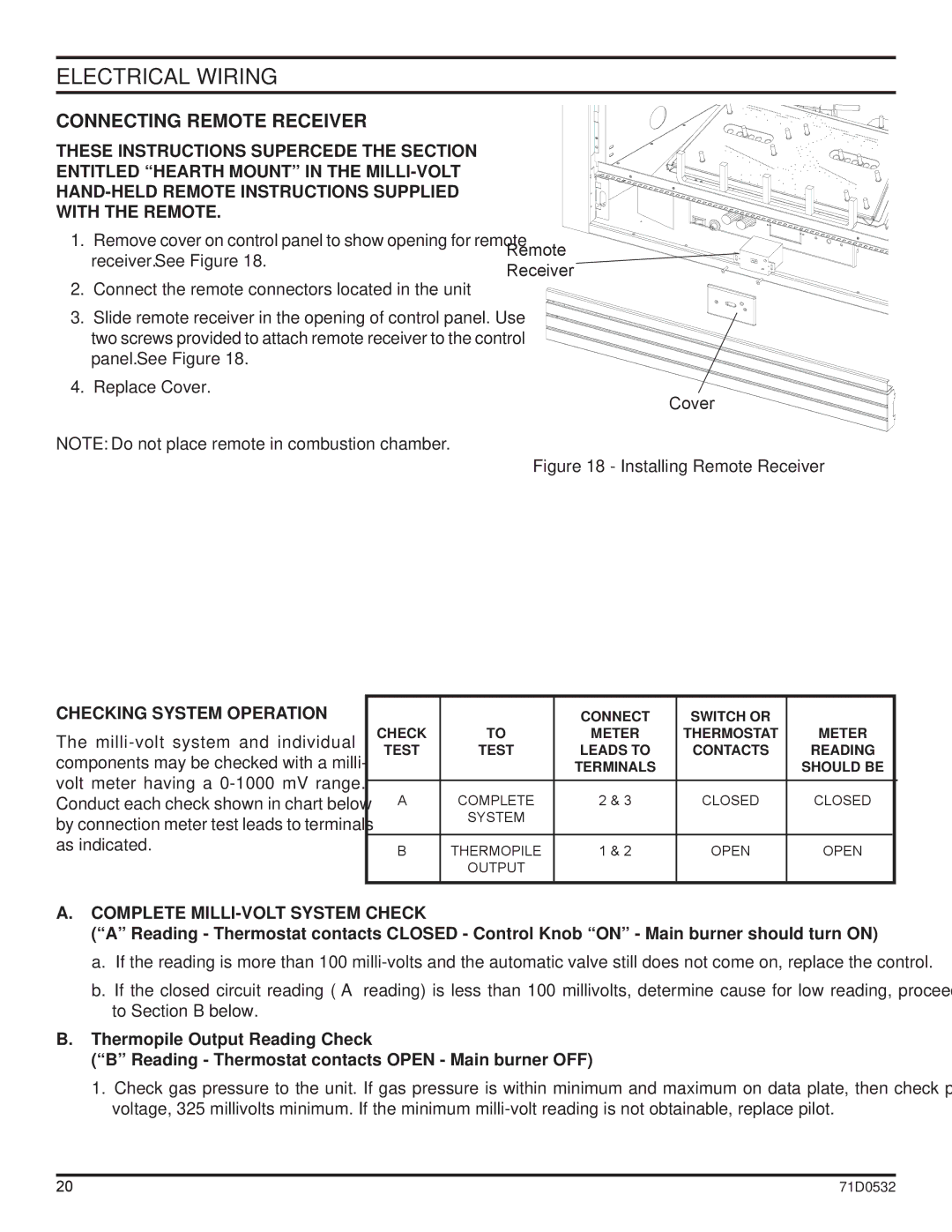
ELECTRICAL WIRING
CONNECTING REMOTE RECEIVER
THESE INSTRUCTIONS SUPERCEDE THE SECTION ENTITLED “HEARTH MOUNT” IN THE
1.Remove cover on control panel to show opening for remote receiver. See Figure 18.
2.Connect the remote connectors located in the unit.
3.Slide remote receiver in the opening of control panel. Use two screws provided to attach remote receiver to the control panel. See Figure 18.
4.Replace Cover.
NOTE: Do not place remote in combustion chamber.
Remote
Receiver
Cover
Figure 18 - Installing Remote Receiver
CHECKING SYSTEM OPERATION
The
|
| CONNECT | SWITCH OR |
|
|
CHECK | TO | METER | THERMOSTAT | METER |
|
TEST | TEST | LEADS TO | CONTACTS | READING |
|
|
| TERMINALS |
| SHOULD BE |
|
A | COMPLETE | 2 & 3 | CLOSED | CLOSED |
|
| SYSTEM |
|
|
|
|
|
|
|
|
|
|
B | THERMOPILE | 1 & 2 | OPEN | OPEN |
|
| OUTPUT |
|
|
|
|
|
|
|
|
|
|
A.COMPLETE MILLI-VOLT SYSTEM CHECK
(“A” Reading - Thermostat contacts CLOSED - Control Knob “ON” - Main burner should turn ON)
a.If the reading is more than 100
b.If the closed circuit reading (“A” reading) is less than 100 millivolts, determine cause for low reading, proceed to Section B below.
B.Thermopile Output Reading Check
(“B” Reading - Thermostat contacts OPEN - Main burner OFF)
1. Check gas pressure to the unit. If gas pressure is within minimum and maximum on data plate, then check pilot voltage, 325 millivolts minimum. If the minimum
20 | 71D0532 |
